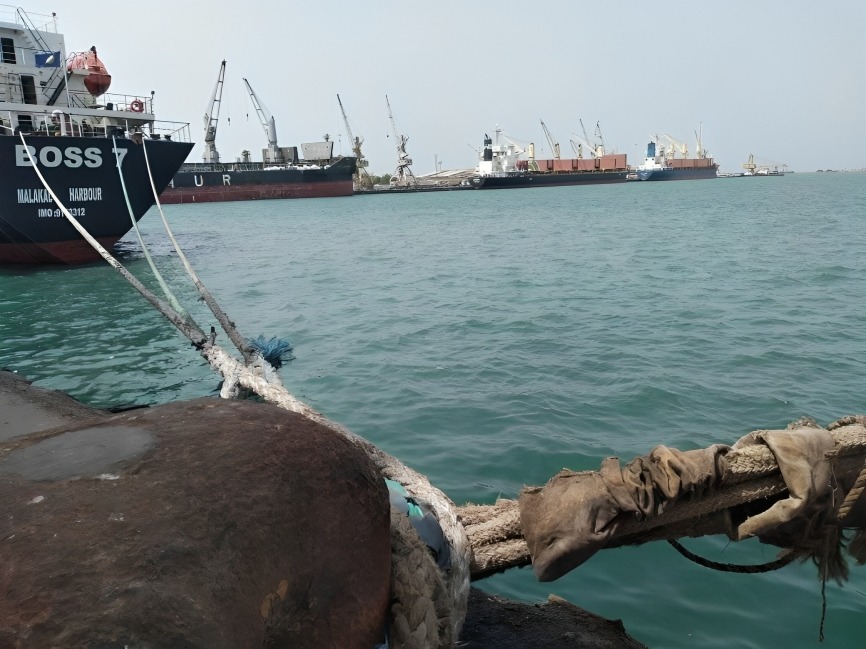
Barran Press
A recent report on Yemen's market and trade, released on September 23, 2024, indicates a substantial decline in wheat imports through the Hodeidah port, controlled by the Houthi movement, following Israeli airstrikes in August. The report highlights a decrease of over 50% in wheat shipments since the attacks.
According to the United Nations and the Yemeni government, the local currency (Yemeni rial) in government-controlled areas fell by 2% month-on-month, reaching a historic low of 1,904 rials per US dollar in August.
The report noted that while overall food imports to Yemen increased by 33% last month compared to the previous month, they remained slightly below levels observed a year ago. Wheat imports through the main ports—government-controlled Aden and Houthi-controlled Salif—did rise, but they were still below peak levels recorded in April and May, as well as those from August of the previous year.
Significantly, the report confirmed that wheat imports via Hodeidah port had plummeted by 54% month-on-month. The UN attributed this decline partially to ongoing maritime attacks on shipping vessels in the Red Sea, the recent Israeli strikes on the port, and delays in supplier contracts.
Regarding the Yemeni rial, the report stated that over the past two years, its value in government-controlled areas has dramatically decreased, losing 26% annually and 38% compared to a three-year average. The depreciation of the rial is primarily due to the depletion of foreign currency reserves, exacerbated by recent disruptions in the banking sector.
The report also addressed the availability of essential food items, gasoline, and diesel, noting that these commodities are generally plentiful across Yemen. It does not anticipate significant shortages in the near term, citing a 12% increase in wheat imports through the three ports (Salif, Hodeidah, and Aden) since the beginning of the year compared to the same period last year, along with pre-stocking efforts.
On July 20, Israel launched a series of airstrikes on Hodeidah port, resulting in numerous casualties and significant material losses estimated by the Houthis at around $20 million. The strikes targeted a fuel depot, a power generation station, and several container cranes, with visible damage confirmed through satellite images.
These attacks occurred a day after a drone strike claimed by the Iranian-backed Houthis targeted Tel Aviv, which resulted in one Israeli death and nine injuries, in retaliation for what they termed "genocide" in Gaza.





